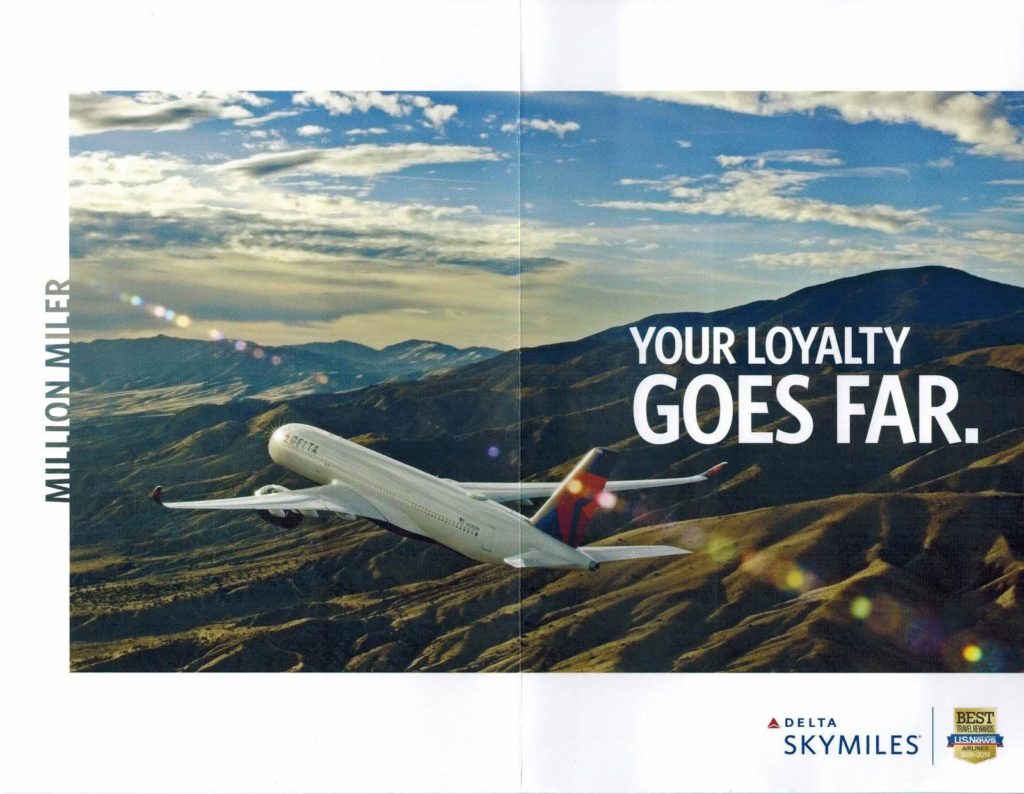Check out our Top Rewards Cards to boost your points earning and travel more!
Big changes to Delta SkyMiles are expected to be announced on September 14, 2023. The so-called Project Orion has not leaked beyond reports of significant training of Delta front-line agents on handling queries. Given how little Delta communicates to members on SkyMiles, that Delta feels the need to proactively communicate rather than stealth further suggests the changes will be noticeable to even casual members.
Consensus expectations are that Delta will ape elements of Loyalty Points, introduced last year by American Airlines’ AAdvantage, with a heavy emphasis on Delta’s Amex co-brand credit cards, and a further de-emphasis of flying, as elements of elite program qualification.
A decade ago Delta SkyMiles implemented revenue-based elite qualification. What comes next?
As a Diamond Medallion, 2-million miler, this series of quick posts explores the state of SkyMiles and airline loyalty programs.
Posts in this series:
- Airline Loyalty Program Managers Don’t Use Their Own Programs
- Have Revenue-Based Loyalty Programs Worked?
- Solve Your Sky Club Overcrowding Problem on Someone Else
- Huge Middle Finger to Your MQMs
- Table of Uses for SkyMiles Versus Everyone Else
- Delta Doesn’t Want Any More Million Milers
- How About this MQM Conversion Option?
- More to come
Delta SkyMiles switched to a so-called revenue-based program in March 2013. United quickly copy-pasted. American less quickly copy-pasted. Worldwide airline adoption of at least semi-revenue based was estimated at 23% in 2020.
The intellectual case for switching from traditional flight-based qualification and earn programs was never convincingly articulated by those making the changes. The arguments made were counter-intuitive and stronger as cases against than for, such as that they would further incentivize the biggest spenders who seemingly need no incentive, while somehow they would not de-incentivize price and value-sensitive customers.
Airline loyalty programs have been lauded as among the most successful and profitable marketing efforts of the past four-plus decades. Three decades of success that created customer engagement to the point of addiction, incentivizing irrational behavior such as the year-end status run. There was seemingly no problem that needed to be solved. Yet, a new generation of loyalty program managers, many hailing from finance backgrounds rather than marketing, decided to risk all that to make drastic, unproven changes. The message of the past decade has been that flying is not so important and no need to geek out on qualifying miles and flown miles and all these things that captivated travelers in a way that marketers in most industries cannot dream to achieve.
We haven’t seen any major airline significantly backtrack from revenue-based. We haven’t seen universal adoption across airlines. Much of the data is proprietary and closely-held.
The big question is did it matter at all? If the old way worked, and the new way also worked despite such differences, then is it that the key ingredient to make a loyalty program work is to be an airline or hotel? Are loyalty programs fundamentally flawed except in the case of airlines and hotels? Do only those have the ‘selling the dream’ aspect and perceived stakes for customers to fall in love?
We see loyalty programs all over with so many failing, shut down, totally changed, restarted. Think of retail store loyalty programs that rapidly come and go or seem to be zombies. Are they killed by lack of member engagement or greedy revenue departments? Hotels.com stay ten nights, get one free program had traction with travelers, yet was killed off and consolidated into the dreadful multi-brand One Key program.
Delta SkyMiles has long been perceived as arguably the airline program most hostile and dismissive of customers. Has their management concluded that as long as they have the sexiness of air travel they can be as naughty as they want to be and get away with it? That enough members are oblivious or disregarding of any changes that there are always further depths the program can plumb? We will see tomorrow. Buckle up.
Related posts:
How About this MQM Conversion Option? (Delta SkyMiles Changes 2023 Series)
Delta Doesn't Want Any More Million Milers (Delta SkyMiles Changes 2023 Series)
Delta SkyMiles Changes 2023 Series: Table of Uses for SkyMiles Versus Everyone Else
Huge Middle Finger to Your Rollover MQMs, Existing Elites (Delta SkyMiles Changes 2023 Series)
Check Out Our: Top Rewards Cards ¦ Newsletter ¦ Twitter ¦ Facebook ¦ Instagram


Did it work? Yes.
Did it matter? Also yes.
Much higher potential revenue, particularly from partners, and lower costs this way. And they didn’t collapse as many of the cheap elites predicted they would.
@Seth Miller – does it change the calculation much for partners whether an airline is revenue-based? Would the partner stuff have developed either way? Setting aside the more extreme AA Loyalty Points example that seems to drive partner activity and the leaked Delta announcement that doesn’t seem like it will jumpstart new levels of partner activity.